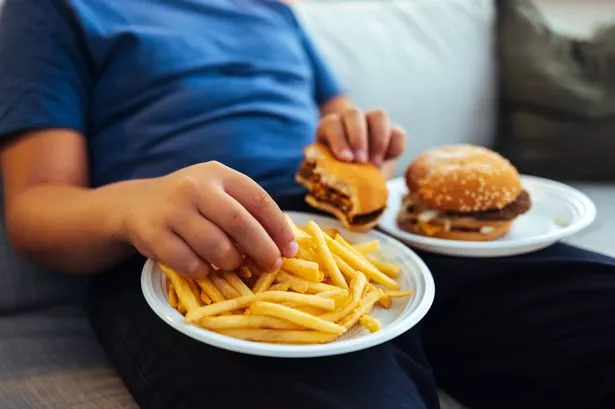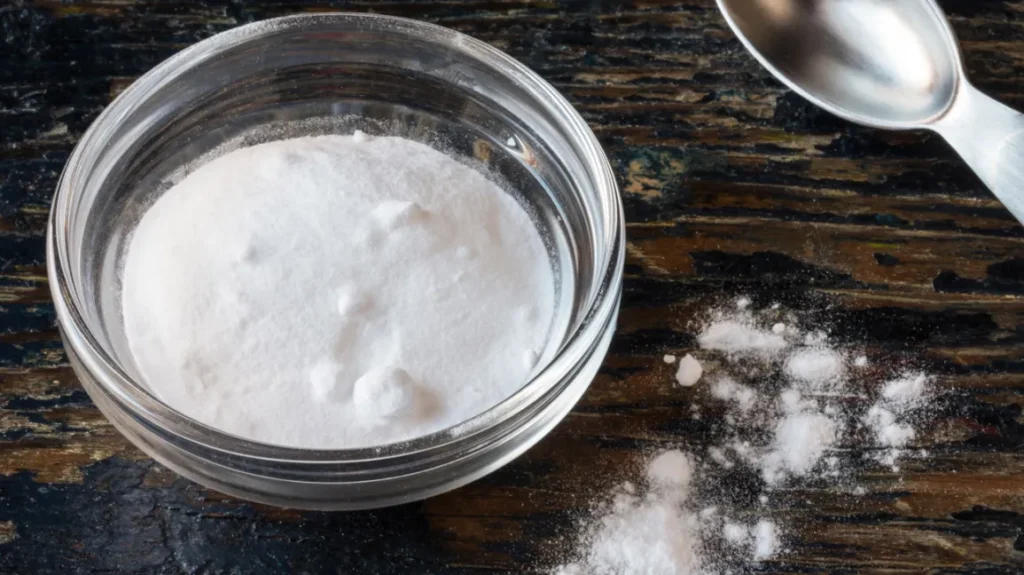In today’s fast-paced world, convenience often takes priority over nutrition. Processed foods—those quick, easy-to-grab meals and snacks—have become a staple in many men’s diets. But while these foods may save time, they could be silently sabotaging something vital: testosterone levels. Testosterone, the primary male sex hormone, plays a crucial role in energy, muscle growth, mood, libido, and overall vitality. Yet, studies show a disturbing trend—testosterone levels in men have been declining over the past few decades. Could what we’re eating be to blame?
In this article, we’ll uncover how processed foods affect male hormones, identify the culprits in your kitchen, and explore how you can protect your body from the inside out.
What Are Processed Foods?

Processed foods are any foods that have been changed from their natural state through methods like freezing, canning, baking, or adding ingredients to extend shelf life or enhance flavor. These can range from minimally processed items like frozen vegetables to ultra-processed foods like sugary cereals, soft drinks, and fast food. While not all processed foods are harmful, ultra-processed ones are often high in sugar, unhealthy fats, salt, and artificial additives.
Recommended: How to Boost Testosterone Through Lifestyle Changes
Ultra-processed foods typically contain ingredients you wouldn’t find in a home kitchen—such as artificial sweeteners, flavor enhancers, preservatives, and emulsifiers. These ingredients are added to improve taste, texture, and shelf life, but they come at a cost to your health. These foods are also generally low in essential nutrients like fiber, protein, and healthy fats, and tend to be high in empty calories that contribute to weight gain.
The regular consumption of ultra-processed foods has been linked to a number of health issues, including obesity, diabetes, and hormonal imbalances. In men, such diets may significantly lower testosterone levels due to increased body fat, insulin resistance, and the presence of endocrine-disrupting chemicals. Reducing intake of processed foods and focusing on whole, nutrient-dense options can help support healthier hormone levels and overall well-being.
How Testosterone Works in the Male Body
Testosterone is a key male hormone mainly produced in the testes, with a small amount from the adrenal glands. Its production is controlled by a hormonal chain that starts in the brain — the hypothalamus signals the pituitary gland to release luteinizing hormone (LH), which then stimulates the testes to produce testosterone. This hormone plays a central role in male development and health.
In the body, testosterone affects many systems. It helps build muscle, supports sexual function and libido, boosts mood, strengthens bones, and encourages the production of red blood cells. When testosterone levels are balanced, men often experience increased strength, mental clarity, confidence, and physical vitality. However, when levels drop, problems such as fatigue, weight gain, low libido, and depression can arise.
Several factors can cause testosterone to decline, including age, stress, poor sleep, and especially diet. Processed foods, filled with harmful fats, sugars, and additives, can disrupt the hormonal signals that regulate testosterone production. Maintaining a balanced, whole-food diet is crucial for keeping testosterone levels healthy and stable.
Recommended: Is Intermittent Fasting Good for Men’s Sexual Health?
Harmful Ingredients in Processed Foods That Lower Testosterone
1. Trans fats
Trans fats are commonly found in fried foods, margarine, and packaged baked goods. They have been shown to increase bad cholesterol (LDL) while lowering good cholesterol (HDL), promoting inflammation throughout the body. This inflammation can directly interfere with the function of Leydig cells in the testes, which are responsible for producing testosterone. Over time, regular intake of trans fats can result in significantly lower testosterone levels and even affect sperm count.
2. Refined sugar
Refined sugar, which is abundant in sweets, soft drinks, and processed cereals, causes rapid spikes in blood sugar and insulin levels. These insulin spikes can disrupt hormonal balance and contribute to increased body fat, especially around the belly. Abdominal fat is particularly harmful because fat cells in this region tend to convert testosterone into estrogen, effectively lowering the body’s testosterone levels and increasing the presence of female hormones.
3. High-fructose corn syrup (HFCS)
High-fructose corn syrup (HFCS), often found in sodas, candy, and sauces, poses a major risk to testosterone health. It contributes to fat buildup in the liver, which can lead to non-alcoholic fatty liver disease. Additionally, HFCS causes insulin resistance over time, disrupting how the body processes glucose and hormones. These effects combined lead to hormonal imbalance and suppressed testosterone production.
4. Artificial additives and preservatives

Artificial additives and preservatives, such as those used in canned goods, frozen meals, and long-shelf-life snacks, can contain endocrine-disrupting chemicals like BPA and phthalates. These chemicals mimic estrogen or interfere with the hormone receptors that respond to testosterone, disturbing the body’s hormonal signals. This can damage the communication between the brain and testes, ultimately reducing testosterone levels and harming fertility.
Recommended: Diet Tips for Naturally Improving Male Performance
5. Excessive sodium
Excessive sodium, or salt, is a common ingredient in instant noodles, chips, and processed meats. While sodium is essential in small amounts, too much can raise blood pressure and reduce healthy blood flow throughout the body. Poor circulation can affect all organs, including the testes, limiting their ability to produce testosterone efficiently.
6. Soy-based fillers
Soy-based fillers, often used in protein bars, meat substitutes, and processed snacks, contain plant compounds called phytoestrogens. These compounds mimic estrogen in the body and may disrupt the natural testosterone-to-estrogen balance if consumed in large quantities. Although moderate soy intake is not usually harmful, overconsumption—especially from processed sources—can contribute to lowered testosterone levels.
7. Alcohol
Alcohol, especially when consumed in the form of processed or sugary alcoholic drinks, can impair liver function. The liver plays a key role in hormone regulation, and when it’s damaged by excessive alcohol intake, it becomes less effective at breaking down excess estrogen. This leads to higher estrogen levels and a drop in testosterone. Alcohol also disrupts sleep and recovery, which are vital for healthy hormone production.
Testosterone-Boosting Foods and How They Help
1. Oysters
Oysters are one of the richest natural sources of zinc, a mineral essential for testosterone production. Zinc helps regulate enzymes in the testes and boosts the release of luteinizing hormone (LH), which signals the testes to produce more testosterone.
2. Eggs
Eggs contain healthy cholesterol, which is the building block for testosterone synthesis. They also provide vitamin D, which supports hormone balance, and protein, which helps maintain muscle mass and reduce fat—both important for hormonal health.
Recommended: Do Raw Eggs Increase Testosterone?
3. Spinach
Spinach is high in magnesium, which helps free testosterone from its binding protein (SHBG) in the blood, making it more bioavailable. Magnesium also reduces inflammation and supports better sleep, both crucial for maintaining optimal hormone levels.
4. Fatty Fish (like salmon, mackerel, and sardines)
These fish are rich in omega-3 fatty acids, which reduce inflammation and support heart and brain health. They also provide vitamin D and protein, all of which contribute to higher testosterone levels and improved sperm quality.
5. Pumpkin Seeds
Pumpkin seeds are a plant-based source of zinc, magnesium, and omega-3s. Together, these nutrients help regulate testosterone, reduce oxidative stress, and support the reproductive system.
6. Avocados
Avocados are loaded with monounsaturated fats, vitamin E, and B vitamins. These nutrients promote healthy cholesterol levels and reduce cortisol (the stress hormone that suppresses testosterone), helping maintain hormonal balance.
7. Broccoli and Other Cruciferous Vegetables (like cauliflower and cabbage)
These vegetables contain compounds like indole-3-carbinol, which help break down excess estrogen in the body. Lower estrogen levels can create a better hormonal environment for testosterone to thrive.
8. Extra Virgin Olive Oil
Olive oil supports testosterone production by improving cholesterol profiles and reducing inflammation. Some studies also suggest it enhances the activity of enzymes in the testes that are involved in testosterone synthesis.
9. Dark Chocolate (at least 70% cacao)
Dark chocolate provides magnesium, iron, and antioxidants, all of which can lower stress, boost circulation, and support the glands that regulate testosterone.
Recommended: How Much Dark Chocolate Should I Eat For Prostate Health?
10. Lean Red Meat (in moderation)
Beef and lamb provide zinc, iron, protein, and healthy fats that are beneficial for testosterone. However, it’s important to choose grass-fed or lean cuts and avoid processed or overcooked meats to avoid counterproductive effects.
Lifestyle Changes to Naturally Boost Testosterone
1. Strength Training and HIIT
Engaging in resistance exercises like weightlifting and high-intensity interval training (HIIT) stimulates testosterone production. These workouts not only increase muscle mass but also reduce fat, especially belly fat, which is known to lower testosterone by increasing estrogen production.
2. Get 7–9 Hours of Quality Sleep

Testosterone is mainly produced during deep, restful sleep. Poor or insufficient sleep can cause a significant drop in testosterone levels within just a few days. Prioritizing consistent, high-quality sleep helps keep hormone levels stable and improves recovery and energy.
3. Manage Stress and Lower Cortisol
Chronic stress leads to elevated cortisol levels. Cortisol competes with testosterone and can block its production. Stress-reducing activities like meditation, journaling, deep breathing, prayer, or even short walks outdoors help balance stress hormones and protect testosterone.
4. Maintain a Healthy Weight
Obesity, especially excess fat around the abdomen, lowers testosterone and increases estrogen. Losing even a small amount of weight through diet and exercise can restore a healthier hormonal balance and improve testosterone levels naturally.
5. Limit Alcohol Intake
Excessive alcohol disrupts the liver’s ability to regulate hormones, which can result in increased estrogen and reduced testosterone. Alcohol also affects sleep and promotes weight gain, both of which further lower testosterone.
6. Avoid Endocrine Disruptors (like BPA and Phthalates)
Common in plastics, canned food linings, and some personal care products, chemicals like BPA and phthalates interfere with hormone production. Switching to glass containers, BPA-free bottles, and natural grooming products can reduce this exposure.
7. Get Regular Sunlight or Take Vitamin D
Vitamin D is actually a hormone precursor and plays a key role in testosterone production. Spending 15–30 minutes in the sun daily or taking a vitamin D supplement if sun exposure is limited helps support natural hormone levels.
8. Stay Hydrated
Dehydration can affect blood flow and energy levels, making it harder for your body to produce and circulate testosterone effectively. Drinking enough water each day supports overall bodily function and hormonal balance.
9. Eat a Balanced, Whole-Food Diet
Eating nutrient-rich foods—especially those high in zinc, magnesium, and healthy fats—supports testosterone production. Reducing sugar and processed food intake prevents insulin resistance and fat gain, both of which harm hormone levels.
Recommended: Best Green Tea For Prostate Health
10. Have a Consistent Routine and Get Enough Rest
A stable daily schedule helps regulate the body’s internal clock, or circadian rhythm, which influences hormone cycles. Getting enough rest—not just sleep—allows the body to recover and function optimally, including in hormone production.
Conclusion
Maintaining healthy testosterone levels is essential for every man’s physical, emotional, and reproductive well-being. While many factors influence hormone balance, diet and lifestyle play some of the most powerful roles. Processed foods filled with harmful fats, sugars, and artificial chemicals can silently lower testosterone over time, leading to fatigue, weight gain, reduced libido, and other health issues.
The good news is that with intentional changes—like eating testosterone-friendly whole foods, exercising regularly, getting enough sleep, managing stress, and avoiding hormone disruptors—you can naturally support and even boost your testosterone levels. These choices don’t just improve hormone health; they also lead to better energy, sharper focus, a stronger body, and a more confident you.
In the end, protecting your testosterone is about more than just one hormone—it’s about building a lifestyle that helps you thrive. By fueling your body with the right foods and habits, you’re not just preventing decline—you’re investing in long-term strength, vitality, and well-being.
